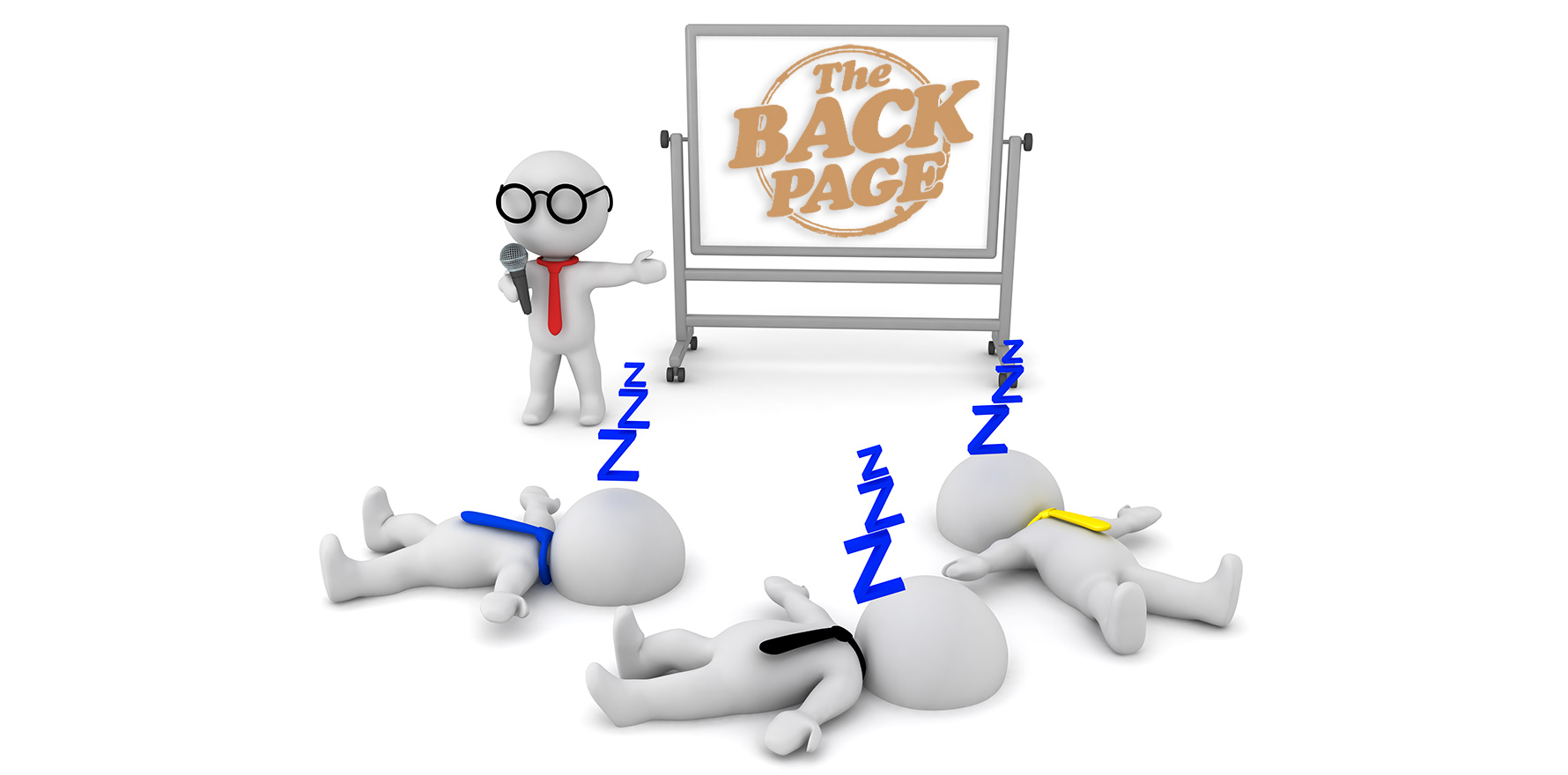I’m sorry, am I keeping you awake?
Writers of journal articles about boredom leave themselves open to obvious cracks vis-à-vis their ability to keep the reader’s attention.
You may remember this 2014 study, in which participants were left alone for 15 minutes with nothing to entertain them but the option to self-administer a slightly painful electric shock, and about half of them preferred to zap themselves rather than sit with their own thoughts.
A writeup of that study for BBC News includes this burn by a fellow scientist: “The most interesting aspect to the study is that their research subjects preferred to give themselves electric shocks rather than experience boredom. Perhaps the subjects simply did it to stay awake, and having now read the author’s paper from beginning to end I can understand their plight.”
The Back Page will resist any such gags at the expense of this paper in Royal Society Open Science, even if we were flicking ourselves in the skull to maintain focus by the end of it.
The authors explore the apparent inconsistency between two established ways of thinking about boredom – Kierkegaard’s “root of all evil”. One is a functional theory of boredom, which holds that the transitory “state” of being bored propels a person towards doing something potentially better with their time, putting them in an exploratory state by increasing sensitivity to reward and creating aversion to the present situation; this could lead to adaptive (e.g. exercise) or maladaptive (e.g. alcohol) behaviours. Empirical research, however, finds that the personality “trait” of boredom proneness is correlated overwhelmingly with maladaptive behaviours such as drug and alcohol use, gambling, unhealthy eating, excessive screen time, and risky behaviours such as dangerous driving.
They recruited over 600 people and had them complete a series of psychometric questionnaires to disentangle boredom proneness from the tendency to do anything to avoid or escape boredom – the latter having the potential to provoke good behaviour at least some of the time – and compared those to the types of behaviour the subjects said they’d undertake when bored.
They found boredom proneness was associated with more maladaptive behaviours and less adaptive behaviours, whereas the readiness to do anything in order not to be bored was associated with both adaptive and maladaptive behaviours.
TLDR: boredom can sometimes lead to good things, as long as the individual desperately wants not to be bored.
The apparent contradiction in the research, the authors say, “probably reflects that the concept of boredom proneness captures an individual’s inability to lead a life that is not boring, while it is agnostic to an individual’s intrinsic tendency to experience an urge to avoid or escape boredom in the first place”.
Since boredom proneness and poor self-control are good correlational friends, and the choice of adaptive vs maladaptive behaviours might depend on self-control, they suggest future research adjust for that factor.
If you see something that makes you sit up straight and stop yawning, fire it off to penny@medicalrepublic.com.au.


